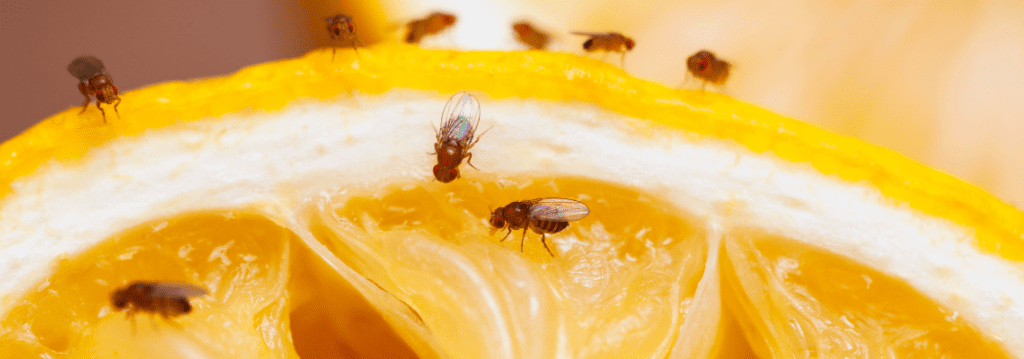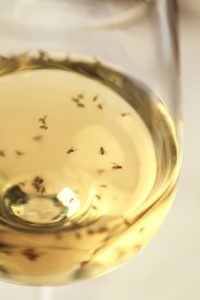
How Long Does Pest Control Last?
Pest control is an important aspect of maintaining a healthy and clean living environment. It involves the use of various methods to control or eliminate pests such as insects, rodents,

Frequents kitchens, grocery stores, and anywhere with exposed ripe or rotting fruits and vegetables.
Frequents kitchens, grocery stores, and anywhere with exposed ripe or rotting fruits and vegetables.
Rapid development from egg to adult in just a week; prolific breeders near food sources.
Canada is home to several fruit fly species, including the common Vinegar fly (Drosophila melanogaster) and the Western Cherry Fruit Fly (Rhagoletis indifferens), as well as the invasive Spotted Wing Drosophila (Drosophila suzukii), which poses significant risks to soft-skinned fruit crops. These fruit flies vary in behavior and habitat preferences but are united by their attraction to fermenting fruits and vegetables, which can lead to problems in agricultural, commercial, and residential settings.
Fruit flies contribute to substantial economic losses in both agricultural and retail food sectors due to food spoilage and contamination. Their presence is especially problematic in environments that handle food like restaurants, supermarkets, and home kitchens, where they are not only a nuisance but also a hygiene risk, capable of spreading bacteria and other pathogens across food surfaces and products.
Fruit flies in Canada generally range from 2.5 to 4 mm in size and can be identified by their tan to light brown bodies and distinct red eyes. The anatomy of a fruit fly is typical of many flies, with a small head that houses large, compound eyes and antennae with feathery bristles crucial for detecting food and navigating. Their thorax supports delicate, membranous wings used for quick flights from one food source to another.
Fruit flies need to be taken seriously due to their potential to spread bacteria that can lead to foodborne illnesses. While they do not bite or sting, the health risks associated with their presence around food make them a significant concern. In commercial settings, a fruit fly problem can also affect the reputation of a business, leading to decreased customer satisfaction and potential regulatory issues. Vigilance and proactive control are essential to prevent infestations and protect against the impacts of these ubiquitous pests.
Fruit flies can enter homes through small openings or come in with groceries that already contain eggs or larvae. Their incredible sense of smell draws them to fermenting or rotting organic matter where they can breed. Poor sanitation, such as leaving out overripe fruits or not cleaning up spills, provides the perfect breeding ground for these pests.
Preventing fruit flies involves maintaining rigorous sanitation practices to remove any potential breeding sites. Store fruit and vegetables in refrigerators rather than on countertops, seal all garbage receptacles tightly, and regularly clean drain traps and recycling bins. For establishments like bars and restaurants, frequent cleaning routines are necessary to manage residues from beverages and food that might attract these pests.
Pestcheck’s fruit fly inspection involves a detailed examination of your home, targeting areas like kitchens, pantries, and garbage disposals where fruit flies breed. Our specialists meticulously document all signs of fruit fly activity. This comprehensive inspection helps us determine the infestation’s extent and formulate a precise treatment plan to effectively eliminate fruit flies and prevent future issues.
Pestcheck’s fruit fly control strategy employs eco-friendly methods to eradicate these pests from your home. We focus on key breeding areas, using safe insecticides and traps to eliminate adult fruit flies and their larvae. This thorough approach ensures immediate relief from fruit flies and prevents future infestations, keeping your home hygienic and fruit fly-free.
Pestcheck’s follow-up services include routine inspections to ensure the effectiveness of our fruit fly control measures. We monitor treated areas, adapting our methods to seasonal changes and ongoing fruit fly activity. This proactive approach guarantees continuous protection, ensuring your home remains free from fruit flies year-round and providing lasting peace of mind.
Because fruit flies don’t have teeth, they rely on liquid to energize them. Their brains can sense fermented fruit from literal miles away. Which means they will always been drawn to sweet items found in nature.
Think about it: when you’re enjoying wine on a summer night, it’s only a matter of minutes before the fruit flies start buzzing around the rim of your glass, desperate for a sip. Believe it or not, fruit flies are actually attracted to the scent of vinegar. Fruit, vegetables, wine and fermented, decaying organic matter are the primary sources of nutrition for the fruit fly.
Winter weather doesn’t kill off fruit fly populations – after all, winter in many areas can be quite warm. Cold temperatures, however, will stunt the development of new generations of fruit flies. Scientists have found that at 60°F, the lifespan of fruit flies decreases. When the temperatures fall below 53°F, these flies stop developing entirely. Still, adult fruit flies have the ability to “overwinter” when conditions get too extreme for them. This allows a fruit fly population to survive frigid temperatures and start the next generation when favorable conditions return.
Check out our blogs and articles to learn more about keeping your home pest-free and your family and pets safe! We’re sharing our expert advice and latest news from behind-the-scenes.

Pest control is an important aspect of maintaining a healthy and clean living environment. It involves the use of various methods to control or eliminate pests such as insects, rodents,

Pest control is a vital aspect of maintaining a safe and healthy environment for humans, pets, and plants. Pests can cause a variety of problems, including property damage, food contamination,

As we move into summer, many people start feeling a bit more tropical, more fruity. At this time of the year, fruit tends to become more available and affordable. After